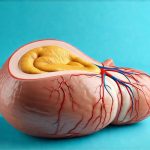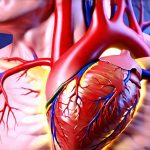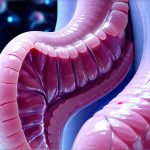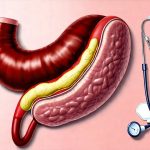Gastroesophageal reflux disease (GERD) is a surprisingly common condition affecting millions worldwide. Often dismissed as simply “heartburn,” GERD can manifest in a wide range of symptoms, some of which can be alarming and even mimic serious cardiovascular events. This can lead to significant anxiety for those experiencing these symptoms, particularly when chest tightness enters the picture. Understanding the intricate relationship between GERD and chest discomfort is crucial for appropriate assessment and management, ensuring individuals seek timely medical attention when necessary while avoiding unnecessary panic. It’s important to remember that self-diagnosis based on online information is never a substitute for professional medical evaluation. Recognizing common symptoms can be the first step, but always consult with a doctor.
The challenge arises because symptoms of GERD can closely resemble those associated with heart problems. Chest tightness, a sensation of constriction or pressure in the chest, isn’t exclusive to cardiac issues; it frequently appears as a symptom of severe reflux. This overlap creates confusion and fear, prompting many individuals to rush to emergency rooms convinced they are experiencing a heart attack when, in fact, their discomfort is related to GERD. Conversely, dismissing chest tightness as “just heartburn” could delay diagnosis of a serious cardiac condition. The key lies in recognizing the nuances of these symptoms and understanding when professional medical advice is paramount. If you experience acid reflux and chest pain, it’s important to understand the potential causes.
Understanding the Link Between GERD and Chest Tightness
GERD occurs when stomach acid frequently flows back into the esophagus – the tube connecting your mouth to your stomach. This backflow, or acid reflux, irritates the lining of the esophagus causing heartburn, regurgitation, and a host of other symptoms. While commonly associated with digestive discomfort, GERD can also trigger chest pain or tightness in several ways. Firstly, the esophagus itself can become inflamed and irritated from repeated acid exposure, leading to esophageal spasms – involuntary contractions that feel like a tight band around the chest. Secondly, acid reflux can sometimes mimic the pain of angina (heart-related chest pain), making it difficult to differentiate between the two conditions without proper evaluation. Finally, some individuals with GERD experience associated anxiety which can exacerbate feelings of tightness and discomfort in the chest.
The sensation of chest tightness related to GERD is often described differently from cardiac chest pain. While heart-related chest pain frequently feels crushing or squeezing, GERD-related tightness tends to be more of a burning sensation or a feeling of pressure that may radiate to the throat or jaw. However, this isn’t always consistent, and individuals can experience atypical presentations making it hard to distinguish based on sensation alone. The timing of the symptoms is also important; GERD-related chest tightness typically occurs after meals or when lying down, while heart-related pain may be triggered by exertion or stress. It’s vital to remember that these are general guidelines and individual experiences can vary considerably.
The severity of GERD significantly impacts the likelihood of experiencing chest tightness. Mild, infrequent heartburn is less likely to cause substantial chest discomfort than moderate to severe reflux with frequent symptoms. Individuals with complications of GERD, such as esophagitis (inflammation of the esophagus) or esophageal strictures (narrowing of the esophagus), are more prone to developing significant chest pain and tightness. Lifestyle factors also play a role; obesity, smoking, and certain dietary choices can worsen GERD symptoms and increase the risk of associated chest discomfort. Understanding when a food is no longer safe can help you manage your diet.
Differentiating GERD Chest Tightness from Cardiac Symptoms
Recognizing the subtle differences between GERD-related chest tightness and heart-related chest pain is crucial but challenging. A key distinction lies in the accompanying symptoms. Heart attack or angina often presents with shortness of breath, sweating, nausea, dizziness, and radiating pain to the left arm, shoulder, or back. While some GERD sufferers may experience nausea, it’s less common and usually related to the acid reflux itself rather than a systemic reaction. Conversely, GERD is more likely to be accompanied by a sour taste in the mouth, regurgitation, and relief with antacids. However, relying solely on accompanying symptoms isn’t foolproof.
A helpful exercise – though not a substitute for medical evaluation – is to carefully consider the circumstances surrounding the chest tightness. Does it occur after eating large meals or lying down? Is it relieved by over-the-counter antacids? If so, GERD is more likely the culprit. However, if the tightness occurs during exertion, is accompanied by shortness of breath or radiating pain, or doesn’t respond to antacids, immediate medical attention is warranted. It’s important to remember that many heart attacks present atypically, especially in women and diabetics, making diagnosis even more difficult.
Ultimately, a definitive diagnosis requires professional evaluation. A doctor will likely ask detailed questions about your symptoms, medical history, and lifestyle factors. They may also order tests such as an electrocardiogram (ECG) to assess heart function, blood tests to check for cardiac enzymes, or an endoscopy to visualize the esophagus and stomach. Distinguishing between GERD and a cardiac event requires expert assessment; don’t attempt to self-diagnose. If you suspect a food reaction, seek professional guidance.
When to Seek Immediate Medical Attention
While many instances of chest tightness related to GERD can be managed with lifestyle modifications and over-the-counter medications, certain situations necessitate immediate medical intervention. If you experience any of the following, call emergency services (911 in the US) immediately:
- Severe, crushing or squeezing chest pain
- Chest tightness accompanied by shortness of breath
- Pain radiating to your left arm, shoulder, jaw, or back
- Sweating, nausea, dizziness, or lightheadedness alongside chest tightness
- A sudden onset of intense chest discomfort that is different from previous episodes
These symptoms could indicate a heart attack or other serious cardiac event and require prompt medical attention. Don’t hesitate to seek help even if you suspect it might “just be heartburn.” It’s always better to err on the side of caution when dealing with chest pain. If you have concerns about hemorrhoids, consult a healthcare professional.
Managing GERD and Reducing Chest Tightness
For those diagnosed with GERD, several strategies can help manage symptoms and reduce the frequency of chest tightness. Lifestyle modifications are often the first line of defense:
- Elevate the head of your bed by 6-8 inches to prevent acid reflux during sleep.
- Avoid trigger foods such as fatty or fried foods, chocolate, caffeine, alcohol, and spicy foods.
- Eat smaller, more frequent meals instead of large ones.
- Lose weight if you are overweight or obese.
- Quit smoking.
Over-the-counter medications can also provide relief:
- Antacids neutralize stomach acid, providing quick but temporary relief.
- H2 blockers reduce acid production for a longer period.
- Proton pump inhibitors (PPIs) are more potent acid suppressors and are often used for chronic GERD.
However, long-term use of PPIs should be discussed with your doctor as they can have potential side effects. If lifestyle modifications and over-the-counter medications aren’t sufficient, your doctor may prescribe stronger medications or recommend further testing to rule out complications such as esophagitis or strictures. Regular follow-up with a healthcare professional is essential to effectively manage GERD and prevent serious complications. Considering an elimination diet can help identify potential food sensitivities, but should be done under medical guidance. Keeping a food and symptom journal can also be beneficial for tracking your reactions to different foods.


















